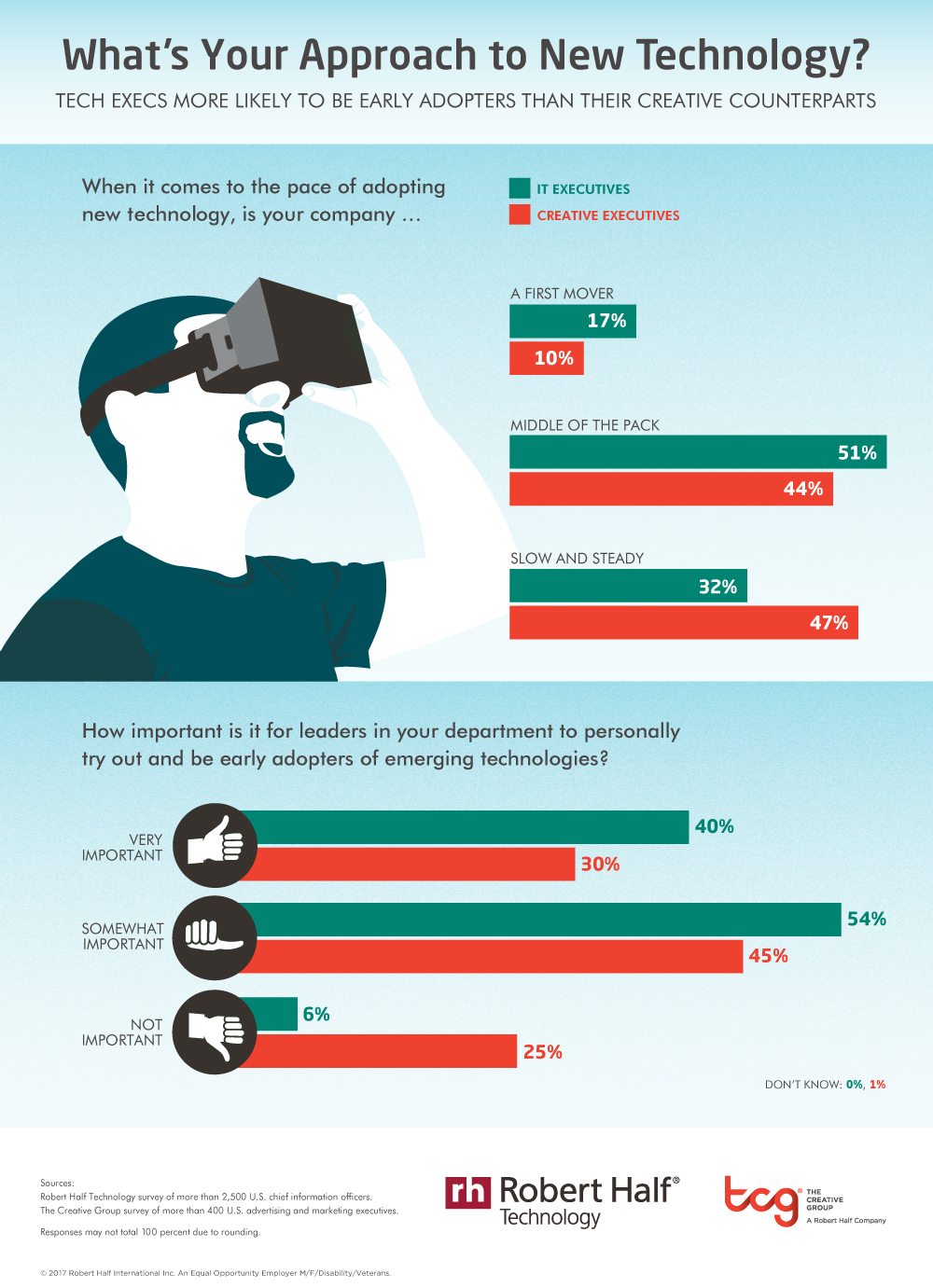Only 17 percent of CIOs and 10 percent of advertising and marketing executives said their companies are early adopters of technology, according to a new study by staffing specialists Robert Half Technology and The Creative Group. Data from the study showed that although consumers are willing to wait in long lines to get their hands on the latest technologies, businesses are less eager to adapt new technology.
The research was conducted by an independent research firm and includes responses from more than 2,500 U.S. CIOs in 24 metropolitan areas and 400 U.S. advertising and marketing executives.
“While technology is meant to make business processes easier, faster and more effective, it can be overwhelming for companies to know which tools and systems to invest in,” said John Reed, senior executive director of Robert Half Technology, in a statement. “Most organizations take a measured approach to implementing new technologies, given the considerable costs, training and potential productivity loss involved.”
Diane Domeyer, Executive Director of The Creative Group, talked to DIVERGE about the study:
Why did you decide to conduct this study?
The Creative Group regularly surveys hiring managers and employees on workplace and industry trends. We share the findings with businesses and job seekers to help them better manage their staff and careers.
Given the fast pace at which technology is changing, and the increasing role it plays in business, we were curious to find out how common it is for company leaders and corporations to stay on the cutting edge of tech.
What were some of the significant results?
While an overwhelming majority of technology and creative executives we surveyed said they think it’s important for leaders in their department to try out the latest tech tools, far fewer said their companies pursue them. Specifically,
·94 percent of technology executives and 75 percent of creative executives said it’s important for leaders in their department to be early adopters of emerging technology
·Only 17 percent of CIOs and 10 percent of advertising and marketing executives considered their companies technology “first movers”
Did the results surprise you?
New technologies are emerging at a fast and almost overwhelming rate, and it can be challenging for companies to determine which are worth the time and resources to invest in, while keeping up with current business demands. So it’s not too surprising that organizations are slower to adopt and roll out new tools and systems than individuals, who can experiment at little expense and risk.
Many IT and creative executives said their organizations observe how other companies use new technologies before adopting them. This measured approach likely helps them determine the potential benefits and drawbacks of implementing new technology, including costs, training and impact on productivity.
Why do you think it’s important for technology to play a role in businesses?
Technology is at the heart of nearly every business endeavor today. In the past, many organizations took their time pursuing digital initiatives, like building a website and establishing a social media presence. Now that they’re an essential and not an option, companies are moving more quickly.
Given the growing demand for digital media, organizations can’t afford to drag their heels when it comes to keeping up with technology and building a team of digitally savvy professionals.
Additional thoughts?
More companies are focusing on digital initiatives, such as optimizing a customer’s online experience or becoming more mobile-friendly. With so many companies looking for digital skills, the supply of qualified candidates is lower than the demand.
Because of the high demand, compensation levels of digital positions are increasing. According to the 2017 Salary Guides from Robert Half Technology and The Creative Group, positions requiring digital expertise, like front-end web developers, mobile designers and data scientists, are seeing the greatest salary gains.


